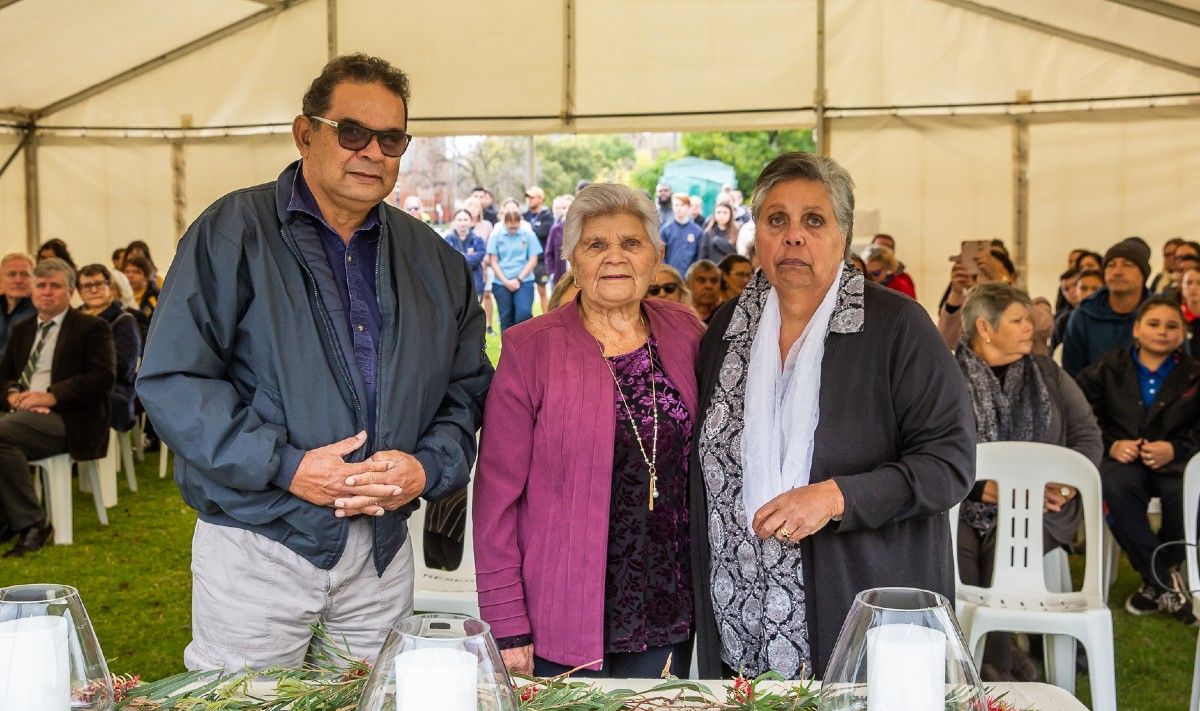
Remembering the Stolen Generations: National Sorry Day 2021
Published: 28 May 2021 1:04pm
Wiradjuri and First Nations Elders and community members gathered this week at the Sorry Day Rock to commemorate National Sorry Day.
Wiradjuri Elder Aunty Isabel Reid performed a Welcome to Country, and was joined by other Wiradjuri Elders lighting hurricane lamps and observing a minute’s silence in remembrance of the Stolen Generation Survivors, families, and the children who did not return home.

Councillor Dan Hayes welcomed the gathering on behalf of the Mayor of the City of Wagga Wagga, Councillor Greg Conkey OAM, and noted that the ongoing healing process was of great importance to the whole community.
“Today is an important day for recognising and acknowledging the devastating effects which the forced removal of children from their families has had in terms of spiritual, emotional and physical trauma,” Cr Hayes said.
“The City of Wagga Wagga is unreserved in its commitment to the Wiradjuri and First Nations community. Acknowledging the sacred value of Wiradjuri culture, language and connection to land and stories is essential to the continuing journey of healing and reconciliation.”

Bringing Them Home
This year’s National Sorry Day, held on Wednesday 26 May, marks 24 years since the 1997 Bringing Them Home report –the national inquiry into the separation of Aboriginal and Torres Strait Islander children from their families.
The Sorry Day Rock, located in the Wollundry Lagoon precinct, was unveiled in 2018 to commemorate the children sent to the Cootamundra Girls Home and Kinchela Boys Home where they were taught farm labour and domestic work.
Reconciliation takes action
National Sorry Day is followed by National Reconciliation Week, 27 May–3 June, which celebrates and builds on the respectful relationships shared by Aboriginal and Torres Strait Islander people and other Australians.
Reconciliation Australia’s theme for 2021; More than a word. Reconciliation takes action, urges the reconciliation movement towards braver and more impactful action.
For more information about National Reconciliation Week, visit Reconciliation Australia
